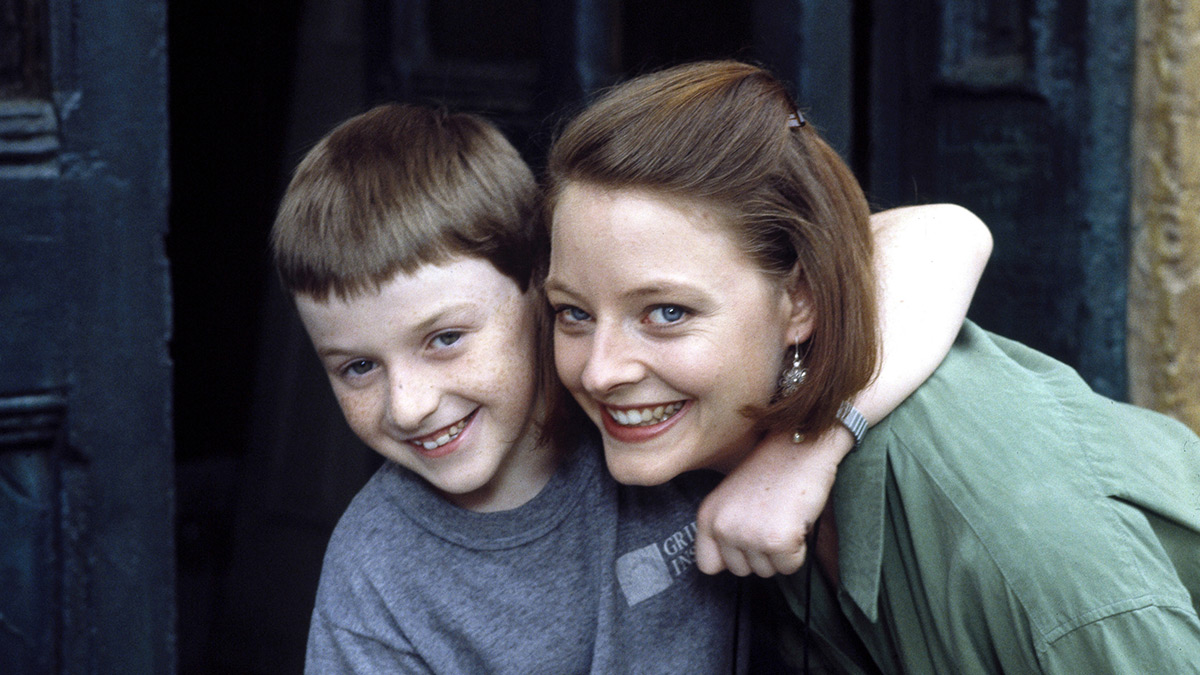
(c) Photofest / Getty Images
"Little Man Tate": Jodie Foster takes on new challenge after mastering her acting career
2024.05.22
Little Man Tate Synopsis
Didi's son Fred is a child prodigy who writes poetry at age four, plays Mozart at age seven, and excels at drawing graffiti on the road. Didi, a single mother, is proud of her son, but one day, Jane, a child psychologist who knows Fred, invites him to participate in a tour program for child prodigies. This is the first time mother and son are separated.
For Jodie Foster, who had been active as a child prodigy since the age of three, it was her appearance in Taxi Driver (1976) at the age of 13 that first sparked her interest in being on the production side.
In this film, Jodie broke out of her shell as a child actor supported by her single mother and seized the opportunity to move on to the next stage as an actor. She also got to see Robert De Niro and Martin Scorsese's work up close and was deeply moved by the way they devoted themselves to filmmaking.
Jodie's vague desire to become a director someday finally became a reality 23 years after she began her entertainment career. She won the Academy Award for Best Actress for " The Accused " (1988), and used the recognition and acclaim she gained there as a springboard to take on further challenges.
The first thing he needs to do is find a script that he is passionate about. While carefully rereading a script that he had turned down in the past, he came across one that really captivated him. That was Little Man Tate (1991), written by Scott Frank, who is now known not only as a great screenwriter but also as a director, at the very beginning of his career.
"Little Man Tate" trailer
Index
- A story that overlaps with Jodie Foster's childhood
- Directing method that doesn't lie to child actors
- Live life with a fulfilling mind and heart
A story that overlaps with Jodie Foster's childhood
This film tells the story of Fred, a 7-year-old genius boy, and his mother (played by Jodie herself). Although there is an irreplaceable bond between parent and child, the unstable nature of their lives means that there is not enough of an environment to nurture Fred's potential. Fred is also extremely different in school life, and not only does he have no friends he can get along with, but all his classmates see him as if he came from another planet. Meanwhile, child psychologist Jane (Dianne Wiest) suggests that he leave his parents' home and have a variety of intellectual experiences under the auspices of a foundation in order to support his unique talent...
At the beginning of the film, there is a scene that shows Fred's genius even before he could speak. During a meal, he holds a plate covered with food and repeatedly shouts, "Koffer! Koffer!" His mother corrects him, saying, "No, that's a plate." However, when he looks closely at the back of the plate, he sees the name of the manufacturer, "Koffer." Thus, his mother realizes that her son can read at a young age. Even as I write this, the excellent scene structure comes vividly to my mind. In fact, it is said that the excellence of this scene was so great that it led screenwriter Scott Frank, who had been making a living as a bartender after graduating from college, to sign an exclusive contract with a major film company.
Meanwhile, I have a book on Jodie Foster's life called " The Truth About Jodie Foster " in front of me, and in the chapter about her childhood, I read a testimony from her mother that Jodie would start reading out loud signs along the road while they were traveling in the car. At first, she thought that her older sisters had taught her, but apparently she was very surprised to find out that the child could read at such a young age.
Taking episodes like this as an example, it seems that there is some level of overlap between the protagonist of this film and Jodie, as both of them had exceptionally talented childhoods.
And one more thing. Although it is not the whole story of the relationship between a genius child and his mother, there are subtle elements that link this film. Perhaps the reason why Jodie herself played this important role of the mother was to explore the psychology of Jodie's mother, who was a stage mother but also gave love and intellectual experiences to her four children and raised them well.
After coming across a script that so strongly appealed to her, Jodie spent two years developing the project, and finally began full-scale production after finishing filming on The Silence The Silence of the Lambs (1991).

